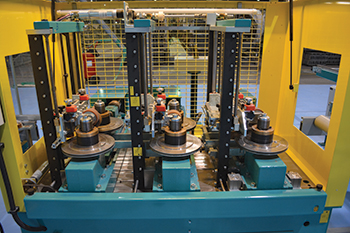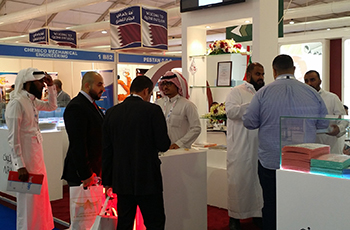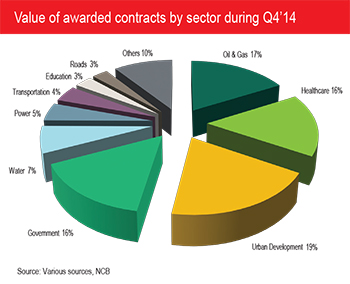
Khodari clinches hospital deal
Saudi Arabian builder Abdullah Abdul Mohsin Al Khodari and Sons has signed a contract worth SR313.2 million ($83.5 million) with the Ministry of Health for the construction of a hospital in the kingdom.
The company also signed a SR34.9-million ($9.3 million) contract with the Higher Education Ministry for the development of the second phase of the Support Deanship Building at Taibah University.
The shares in the Saudi builder jumped 3.1 per cent to SR31.30 ($8.34) on the news of the project wins.
Work on pharmaceutical plant begins
Construction work on the SR1-billion ($266.5 million) Neopharma drug manufacturing plant in Jazan started last month, a top official said.
“The plot of land for the project has already been allotted and the licensing procedures are progressing well,” B R Shetty, chief executive officer and managing director of New Medical Centre Group of Companies and UAE Exchange, was quoted as saying by Saudi Gazette. The Neopharma plant in Jazan would concentrate on manufacturing medicine for cancer and dengue fever in addition to some chronic diseases, he said, stressing that his company’s focus will be on making available halal medicine in the Saudi market.
ASJC to build facility at KAEC
Al Salem Johnson Controls (ASJC), a joint venture between the Saudi Arabia’s Al Salem Group and US-based Johnson Controls, has laid the foundation stone for a manufacturing facility and training centre at King Abdullah Economic City’s (KAEC) Industrial Valley.
The manufacturing facility, to be built on 203,783 sq m of land in KAEC in the Western Province, is expected to begin its first developmental phase immediately and become fully operational by 2017.
The facility will use Johnson Controls’ manufacturing and quality control systems, and has been designed to produce integrated solutions that increase energy efficiency and operational savings.
Undeveloped land to be taxed
Saudi Arabia’s cabinet has approved a proposal to tax undeveloped land in urban areas, a policy that could help to end a shortage of affordable homes and spur economic growth.
The cabinet told a council of top economic officials to prepare a mechanism for the tax, saying the matter was urgent, the state news agency SPA reported. Much urban land in the kingdom is owned by wealthy individuals or companies who prefer holding it as a store of value, or trading it for speculative profits, to the process of developing it.
The tax could change that and spur home building activity. The SPA report gave no details of the size of the tax, how it would be implemented, or a timetable for introducing it.





















_0001.jpg)


.jpg)
















.jpg)








.jpg)




